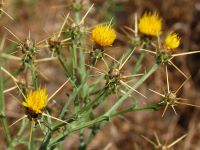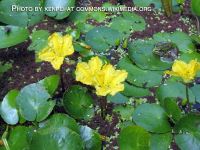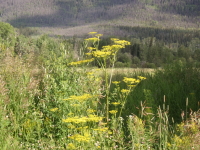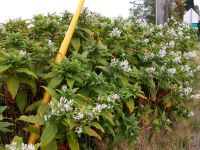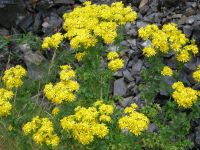Plants
Government has evaluated more than 300 terrestrial and aquatic plant species to determine likelihood of occurrence, establishment and spread as well as to determine which pose the greatest threat. 48 plant species are candidates for early detection and rapid response activities and 118 other species are recommended for other levels of management.
There are 5 priority categories. A plant's priority category determines the province's response.
- Prevent
- Early detection and rapid response (EDRR)
- Provincial Containment
- Regional containment/control
- Management
The plants on this page are organized into these categories with additional information on:
The priority categories are also available in a table format
Prevent
These species are determined to be high risk to B.C. and are not yet established. Management objective is prevent the introduction and establishment.
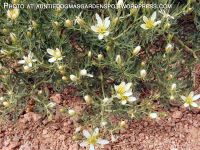
African rue
Peganum harmala
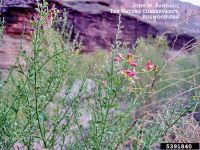
Camelthorn
Alhagi maurorum

Common crupina
Crupina vulgaris
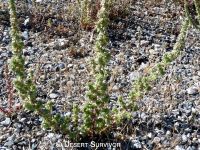
Halogeton/Saltlover
Halogeton glomeratus
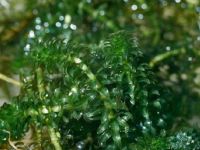
Hydrilla (PDF, 585KB)
Hydrilla verticillata
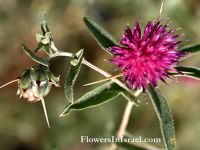
Iberian starthistle
Centaurea iberica
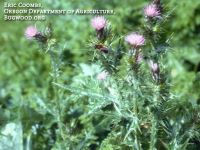
Italian thistle
Carduus pycnocephalus
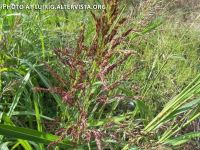
Johnsongrass
Sorghum halepense
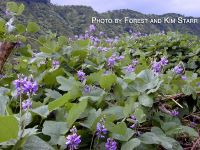
Kudzu (PDF, 810KB)
Pueraria montana var. lobata
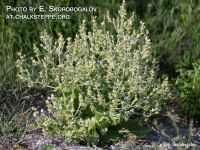
Mediterranean sage
Salvia aethiopis
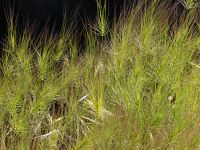
Medusahead (PDF, 766KB)
Taeniatherum caput-medusae
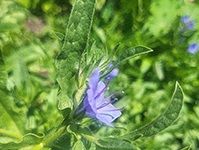
Paterson’s Curse
Echium plantagineum
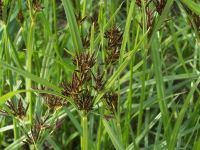
Purple nutsedge (PDF, 127KB)
Cyperus rotundus
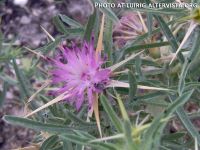
Purple starthistle
Centaurea calcitrapa
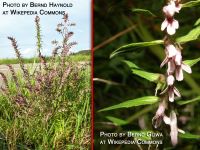
Red bartsia
Odontites serotina

Silverleaf nightshade
Solanum elaeagnifolium
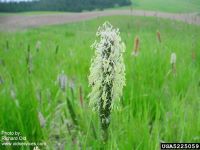
Slender/Meadow foxtail
Alopecurus myosuroides
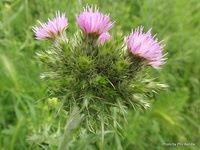
Slenderflower thistle/winged thistle
Carduus tenuiflorus
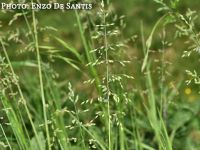
Spring milletgrass
Milium vernale

Spurge Flax
Thymelaea passerina
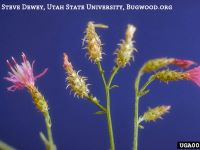
Squarrose knapweed (PDF, 113KB)
Centaurea virgata ssp. squarrosa
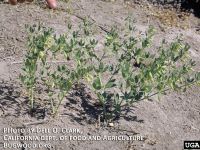
Syrian bean-caper
Zygophyllum fabago
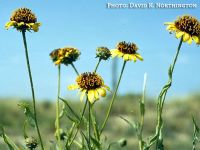
Texas Blueweed
Helianthus ciliaris
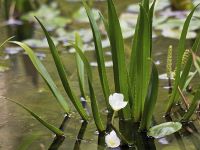
Water soldier
Stratiotes aloides
Early detection and rapid response (EDRR)
Learn more about the provincial EDRR.
These species are high risk to B.C. and are new to the Province. Management objective is eradication.
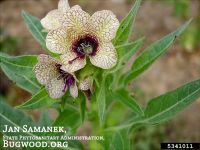
Black henbane (PDF, 950KB)
Hyoscyamus niger
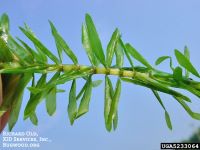
Brazilian Elodea/Waterweed (PDF, 506KB)
Egeria densa
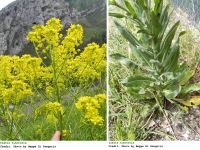
Dyer's woad
Isatis tinctoria
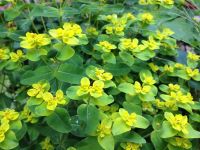
Eggleaf spurge (PDF, 2MB)
Euphorbia oblongata
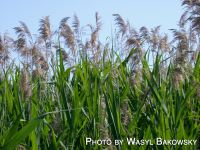
European common reed (PDF, 558KB)
Phragmites australis
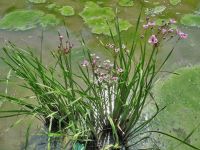
Flowering rush (PDF, 508KB)
Butomus umbellatus
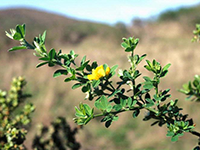
French Broom
Genista monspessulana
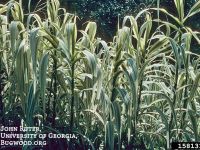
Giant reed
Arundo donax
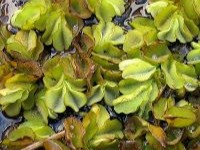
Giant salvinia (PDF, 1.9MB)
Salvinia molesta
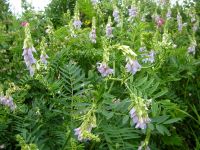
Goatsrue (PDF, 1MB)
Galega officinalis
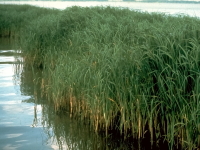
Invasive cordgrasses
Spartina spp.
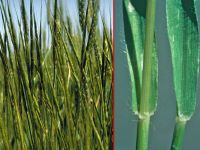
Jointed goatgrass (PDF, 356KB)
Aegilops cylindrica
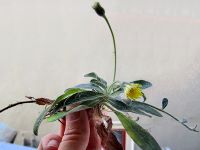
Mouse ear hawkweed (PDF, 530KB)
Hieracium pilosella

Patersons curse
Echium plantagineum
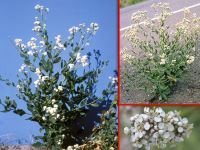
Perennial pepperweed (PDF, 592KB)
Lepidium latifolium
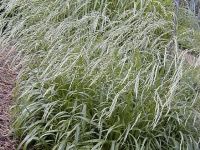
Slender False brome (PDF, 1MB)
Brachypodium sylvaticum subsp. sylvaticum
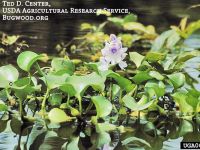
Water hyacinth
Eichhornia crassipes

Water lettuce
Pistia stratiotes
Provincial containment
Species is high risk with limited extent in B.C. but significant potential to spread. Management objective is to prevent further expansion into new areas with the ultimate goal of reducing the overall extent.
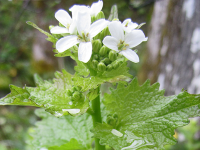
Garlic mustard (PDF, 346KB)
Alliaria petiolata
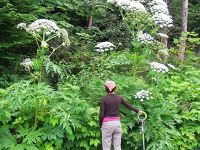
Giant hogweed (PDF, 660KB)
Heracleum mantegazzianum
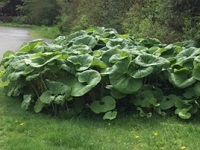
Japanese butterbur (PDF, 740KB)
Petasites japonica
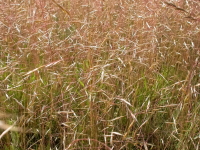
North Africa grass (PDF, 760KB)
Ventenata dubia
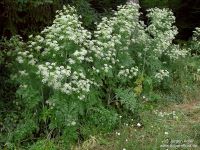
Poison hemlock (PDF, 550KB)
Conium maculatum
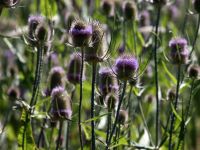
Teasel (PDF, 665KB)
Dipsacus fullonum
Regional containment/control
Species is high risk and well established, or medium risk with high potential for spread. Management objective is to prevent further expansion into new areas within the region through establishment of containment lines and identification of occurrences outside the line to control.
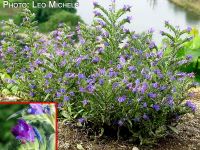
Blueweed (PDF, 135KB)
Echium vulgare
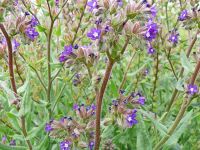
Common bugloss (PDF, 125KB)
Anchusa officinalis
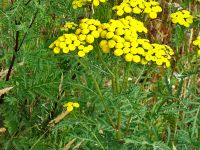
Common tansy (PDF, 150KB)
Tanacetum vulgare
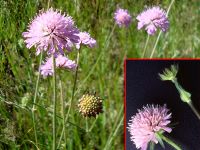
Field scabious (PDF, 137KB)
Knautia arvensis
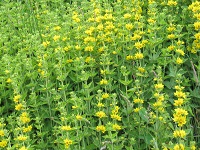
Garden yellow loosestrife
Lysimachia vulgaris
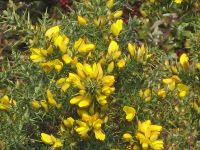
Gorse (PDF, 144KB)
Ulex europaeus
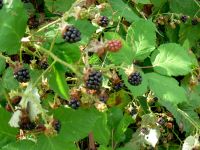
Himalayan blackberry
Rubus armeniacus
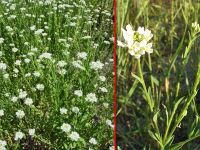
Hoary alyssum (PDF, 133KB)
Berteroa incana
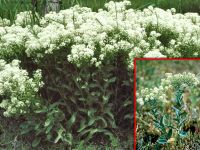
Hoary cress (PDF, 160KB)
Cardaria draba
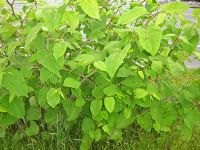
Knotweeds (Japanese, Giant and Bohemian) (PDF, 809KB)
Treatment Guidelines (PDF, 165KB)
Fallopia/Reynoutria and Polygonum spp.
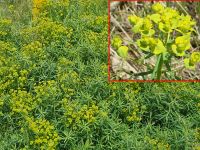
Leafy spurge (PDF, 154KB)
Euphorbia esula
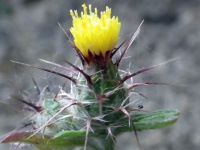
Maltese star thistle
Centaurea melitensis
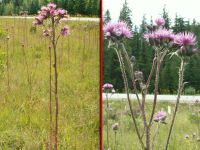
Marsh plume thistle / marsh thistle (PDF, 157KB)
Cirsium palustre
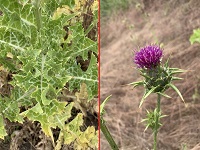
Milk thistle
Silybum marianum
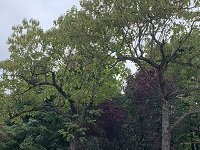
Princess tree
Paulownia tomentosa
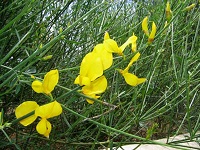
Portuguese Broom (PDF, 1.7MB)
Cytisus striatus
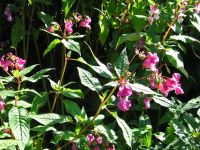
Policeman's helmet/Himalayan balsam
Impatiens glandulifera
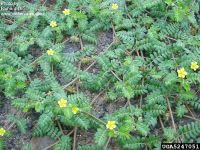
Puncturevine (PDF, 124KB)
Tribulus terrestris
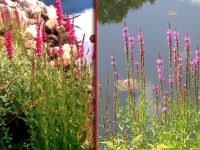
Purple loosestrife (PDF, 140KB)
Lythrum salicaria
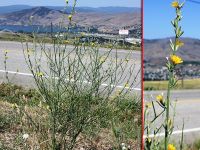
Rush skeletonweed (PDF, 151KB)
Chondrilla juncea
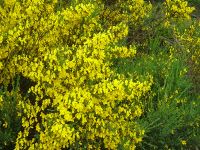
Scotch broom
Cytisus scoparius
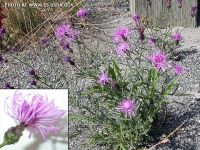
Spotted knapweed (PDF, 169KB)
Centaurea stoebe
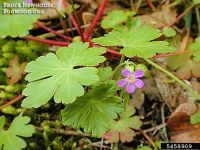
Shiny geranium (PDF, 1.9MB)
Geranium lucidum
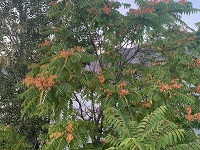
Tree of heaven
Ailanthus altissima
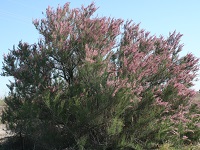
Tamarisk/Salt cedar
Tamarix ramosissima
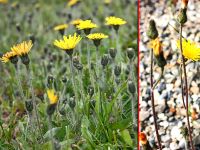
Whiplash hawkweed
Hieracium flagellare
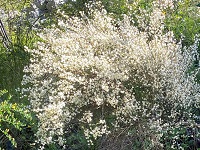
White-flowered broom
Cytisus multiflorus
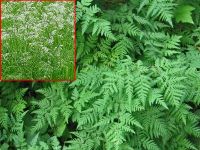
Wild chervil (PDF, 132KB)
Anthriscus sylvestris
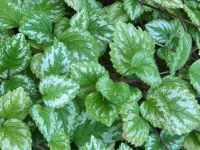
Yellow archangel
Lamium galeobdolon
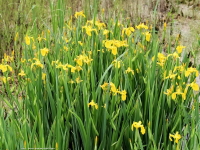
Yellow flag iris
Iris pseudacorus
Management
Species is more widespread but may be of concern in specific situations with certain high values - for example, conservation lands, specific agriculture crops. Management objective is to reduce the invasive species impacts locally or regionally, where resources are available.
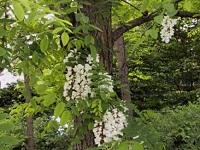
Black locust
Robinia pseudoacacia
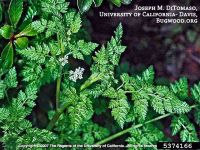
Bur chervil (PDF, 523KB)
Anthriscus caucalis
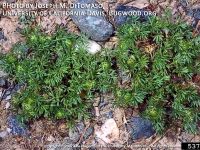
Carpet burweed
Soliva sessilis
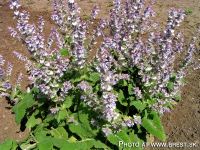
Clary sage
Salvia sclarea
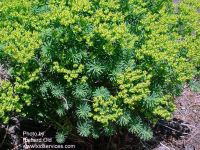
Cypress spurge
Euphorbia cyparissias
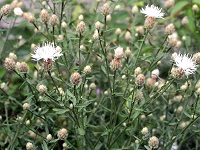
Diffuse knapweed
Centaurea diffusa
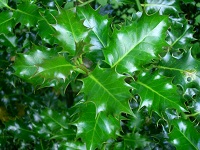
English holly
Ilex aquifolium
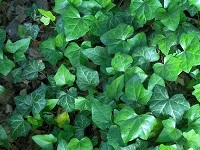
English ivy
Hedera helix
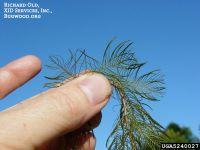
Eurasian water milfoil (PDF, 288 KB)
Myriophyllum spicatum
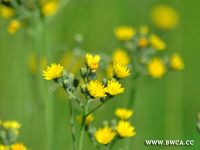
Invasive yellow hawkweeds
Hieracium spp.
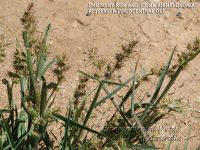
Longspine Sandbur
Cenchrus longispinus
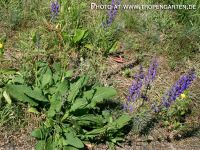
Meadow Clary (PDF, 526KB)
Salvia pratensis
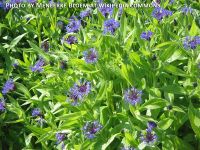
Mountain bluet
Centaurea montana
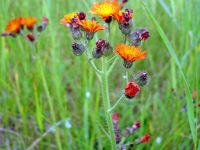
Orange hawkweed (PDF, 166KB)
Hieracium aurantiacum
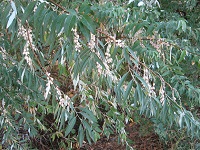
Russian olive
Elaeagnus angustifolia
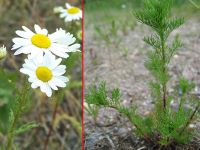
Scentless chamomile (PDF, 139KB)
Tripleurospermum inodorum
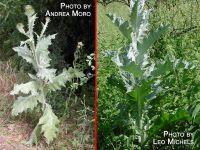
Scotch thistle (PDF, 152KB)
Onopordum acanthium
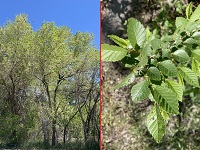
Siberian elm
Ulmus pumila
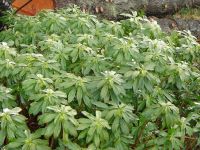
Spurge laurel/Daphne
Daphne laureola
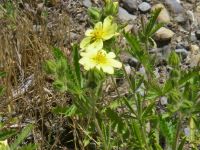
Sulphur cinquefoil (PDF, 133KB)
Potentilla recta
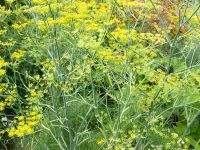
Sweet fennel
Foeniculum vulgare
Invasive plants with biocontrol
The B.C. government uses biocontrol agents to reduce invasive plant populations to ecologically and economically acceptable levels, and to prevent invasive plants spreading into new areas.
Invasive Trees
A list of non-native tree species, as assessed by the BC Ministry of Forests’ Invasive Plant Program and the BC Inter-Ministry Invasive Species Working Group, has been confirmed as either invasive or potential species of concern to British Columbia. These tree species may spread quickly and threaten environmental, social, cultural and/or economic values. While none of the following species are currently Provincially regulated, planting, selling, or trading of these species is strongly discouraged and removal where possible is recommended.
Learn more about these Invasive Trees (PDF, 181KB)

